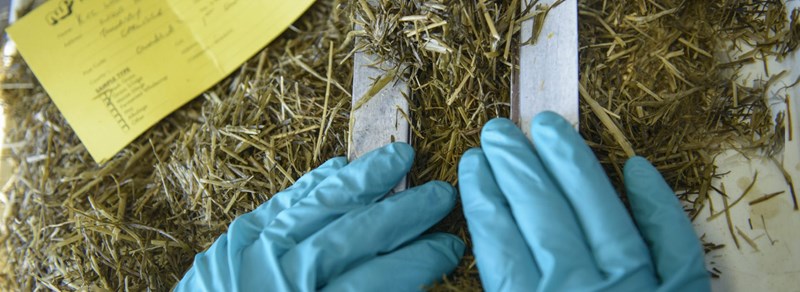Products & Services
Orders & Deliveries
01829 797 123
My NWF Agriculture
- Home
Services

About Us
Services
RATION PLANNING
Our comprehensive NutriOpt Feed Rationing System is regularly updated to take accounts of all the developments that improve our understanding of how to ration cows effectively. Following discussions with your NWF Feed Specialist the program will formulate a cost-effective, balanced ration with sufficient levels of all essential nutrients to suit growth and animal welfare requirements.
Nutriopt Feed Rationing Programme
The new NutriOpt dairy rationing system will be widely available on dairy farms and constitutes the biggest development seen in our understanding and application of dairy cow feeding for over 20 years.
There are two key areas which have helped define the advances in dairy cow productivity over the last 50 years, contributing to increases in yield and productivity which, to many, were unimaginable.
The first is the advances in genetic technologies. Better indices, more rigorous selection and the introduction of techniques such as semen sorting, embryo transfer and genomics have all helped farmers breed more potentially productive cows.
The second has been the evolution of more effective dairy nutrition models which have helped us to feed cows with increasing precision to allow them to realise their genetic potential. We have progressed through hay and starch equivalents to the ME system which, although introduced in the 1970s, still largely underpins our current feeding approaches.
Diet Sieving
Sieving is a technique that helps you get the best from your rations.
The way cows perform on a diet depends not only on the nutritional specification of the diet but also on the physical form of the ration. We have been working closely with Trouw Nutrition in a research project to modify the sieving system used in the United States (the Penn State Separator System) and make it suitable for UK forages and systems. The result is a mechanism to assess the physical breakdown of diets and to compare what is being fed to targets and to modify diets accordingly. The system predicts what the breakdown of the particle sizes will be when the diet is formulated. It also assesses the quality of the fibre in the diet and how effective it is in promoting chewing and rumination, both of which are essential for good growth. The system enables you to check the ration fed is what is expected following mixing and post feeding.
Contact your local NWF FAR registered feed specialist or call our technical team on 0800 756 2787 to find out more information on our NutriOpt feed rationing or diet sieving.
Forage Analysis
The foundation of effective ration planning is an understanding of the feed value of forages. We offer a full Forage Analysis Service from our on-site laboratory at Wardle which is maintained and quality assured by Trouw Nutrition.
We provide our customers with a unique laboratory service, to help develop and sustain the correct diet for your individual herds. NWF sales representatives work alongside farmers and our in-house nutritionists to develop tailored diets using our quality feed range. Our aim is to maximise herd health and output.
Forage Analysis
We provide a forage analysis service for Fresh Grass, Grass Silage, Maize, Whole-crop and Hay and Haylage, and aim to have fully comprehensive results in the hands of our customers within 24 hours of the sample being taken. To assure you of the quality of our results, NWF Agriculture conforms to the Forage Analysis Assurance scheme.
Mineral Analysis
As livestock dietary requirements become more complex and the aim to maximize herd health becomes of increasing importance, NWF is also able to offer a Mineral Analysis service for both soil and forage to identify any areas for improvement, results from which our nutritionists are able to advise and develop for individual herd requirements.
Dairy Costings
NWF Agriculture can provide a dairy costings service to stimulate discussion, help customers with their business efficiency and highlights areas that might need improving.
Experienced and local NWF sales representatives can meet customers on farm to discuss their results using graphing tools. These tools enable us to assess your particular area of interest e.g. yield output, milk from forage, margin over concentrates, etc. NWF can then analyse the report relating to your specific requirements and provide a detailed overview suggesting improvements.
NWF League tables are generated every 4 months which help benchmark businesses against others of similar size.
Dry Cow & Fertility
Getting the condition of the cow right throughout the transition period is essential to the profit of her next lactation, and of course for the health of the calve.
Dry Cow
In this time the phrase “rest, repair and prepare” has never been more important. NWF Transition Cow Programme is a new complete nutritional programme designed to take dairy cows successfully from drying off through to a productive and healthy early lactation.
For more technical information on NWF Transition Cow Programme please call the technical team on 0800 756 2787.
Fertility
Dairy cow fertility has declined in recent years. The 2 main issues seem to be identifying correctly when the cow is in heat through the detection of cows showing signs of oestrus and reducing early embryonic death. The problem is multifactorial but nutritional input has a big role to play.
NWF is tackling the problem in a number of ways:
1. Ultra Starch W is a unique raw material that provides a source of by-pass starch. This means that a larger proportion of the starch contained in the raw material by-passes rumen breakdown by microbes and is digested in the abomasum. The result of this is a more stable rumen environment and an increase in Glucogenic precursors (glucose) to the cow.
Diets high in Glucogenic nutrients stimulate insulin, a hormone that plays a key role in reproduction. Insulin has a positive impact on the resumption of the oestrus cycle.
High Glucogenic diets can also help cows return to positive energy balance faster after calving by increasing the energy supply to the cow and therefore improving rebreeding potential. Ultra Starch W is available in NWF compounds, blends and is also available as a straight.
2. NWF have developed a BCS monitor, providing BCS targets to help track your cows throughout lactation and the transition period. BCS scoring is an important tool when it comes to fertility as studies show that cows that calve down with BCS of 3.5 or higher are at an increased risk of metabolic diseases such as milk fever which has a negative impact on both fertility and cost to the farmer. Speak to your local NWF Sales Specialist in order to take full advantage of this vital tool.
Fertility Audit, from NWF gives a starting point to benchmark your business against industry targets to draw attention to potential problem areas.
Soil Analysis
The NWF Soil Analysis Service enables accurate assessment of the correct levels of the most important nutrients that should be applied to grassland, arable and forage crops. The results provide insight on how to use fertiliser more efficiently.
Soil Analysis Results
Soil analysis is necessary to enable prediction of nutrient levels available crops, ensuring the correct additives can be made for optimum plant growth and crop protection. Standard soil analysis includes pH, P, K and Mg. Trace elements can be included on request at an additional cost.
The available levels of the following can be accurately measured:
- Phosphorus
- Potassium
- Magnesium
- pH
- Calcium
- Sulphur
- Sodium
- Iron
- Manganese
- Copper
- Zinc
- Boron
- Molybdenum (Cobalt, Iodine of grassland)
Soil Sampling
The importance of care when sampling, the reliability of soil results, and the subsequent information that can draw from the results is dependent on the care and accuracy of the initial sample taken on farm.
Following three simple stages ensure the results are accurate:
Stage 1 Taking a representative sample of soil, from a uniformly managed area
Stage 2 Supplying all relevant field and background information
Stage 3 Correct packaging of the sample to avoid contamination, and immediate dispatch to the laboratory.
Soil samples should be taken on all fields at least once every 2-4 years. Soil where vegetables or other high cash crops are grown may need to be tested annually to ensure the most relevant and up to date information is available.
For arable and grassland P, K, Mg soil samples can be taken at any time of the year, provided fertiliser has not been applied in the past 4-6 months. Where lime has been applied, a period of 2 years should be allowed before a sample is taken for pH.
Fields of up to 10Ha (25 Acres) can be sampled as a single unit, providing the field is uniform (i.e. soil type, past cropping, lime and fertiliser usage etc.). If a field has been created through the removal of hedgerows, it is unlikely to be uniform and thus unsuitable for a single test.
Large fields and fields which are not uniform should be subdivided and each area sampled and labelled as separate. Ensure the equipment is clean (chromium plated or stainless steel auger, hand trowel or spade), and take a plastic bucket.
Soil Sampling Paths
When taking soil samples paths of individual samples should follow a carefully thought-out route across the field. The ‘w-pattern’ can be easily adapted to most shapes of field. Avoid areas which are not representative of the field as a whole, such as gateways, headlands, hedges, ditches, footpaths, fences, telegraph poles, bonfire-sites, or dumps of fertiliser, lime or manure.
We recommend 20 sub-samples, taken at regular intervals along the sampling path. This representative number is required even if the area is small.
Step 1 For each of the 20 sub-samples, remove the top 5cm (2”) of soil and discard away from the sample hole.
Step 2 Take a sample to a depth of 15cm (6”) for arable or 7.5cm (3”) for grass and place this into the plastic bucket.
Step 3 The 20 sub-samples should be mixed in the bucket, before filling a polythene bag with mixed soil (around 0.5kg (3/4lb) of soil).
Step 4 Seal bag securely and label it.
If there are problem patches within the field which need analysis, i.e. acid patches, do not mix with any other sub-samples, instead sample separately.
Contact your local NWF FAR registered feed specialist or call our technical team on 0800 756 2787 to find out more information on our NutriOpt feed rationing or diet sieving.



Information
Contact Us
Office Hours
8.00am to 5.00pm Monday to Friday
01829 797 100
- Powered by etailsystems.com
© NWF Agriculture - All rights reserved




